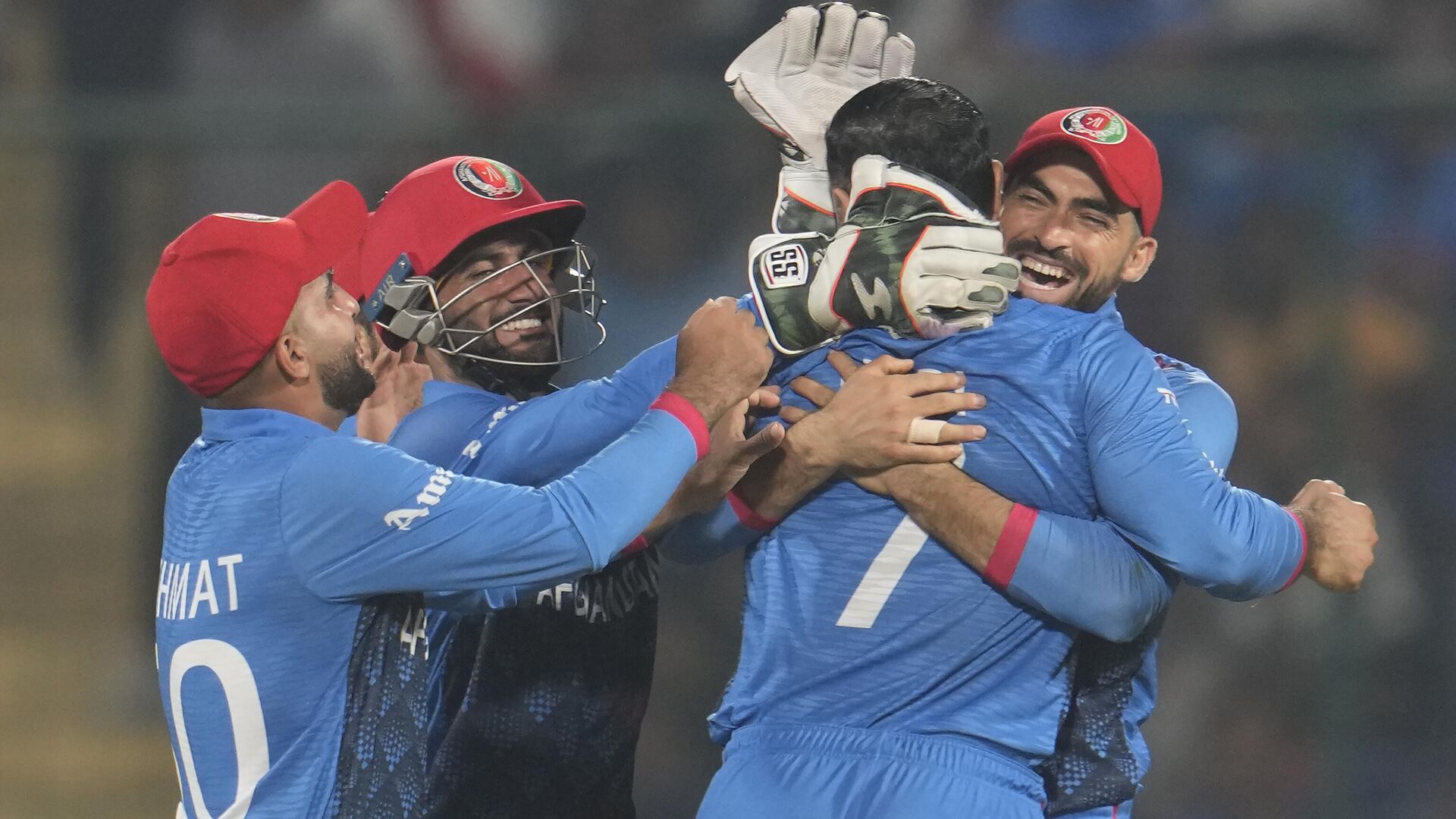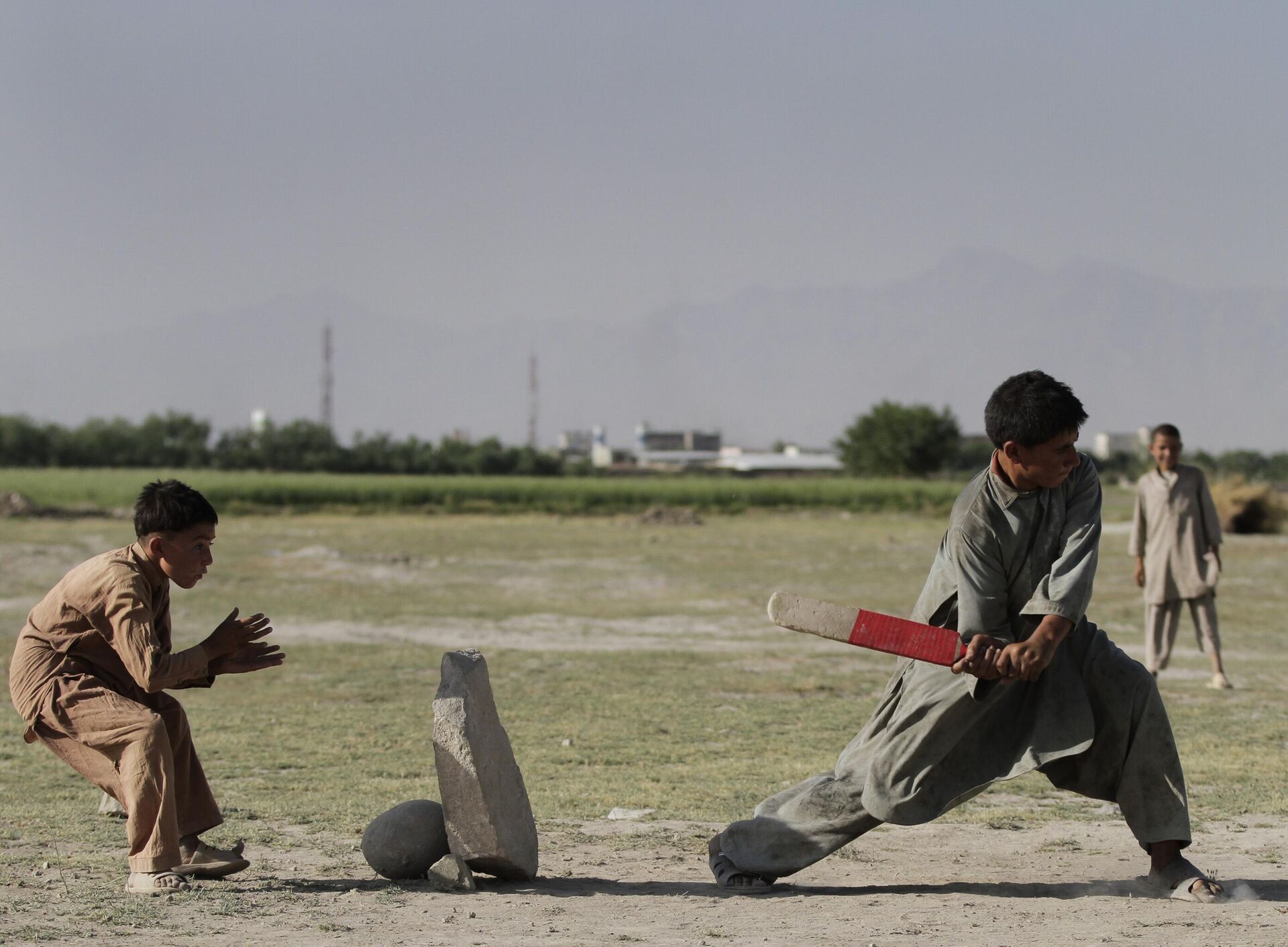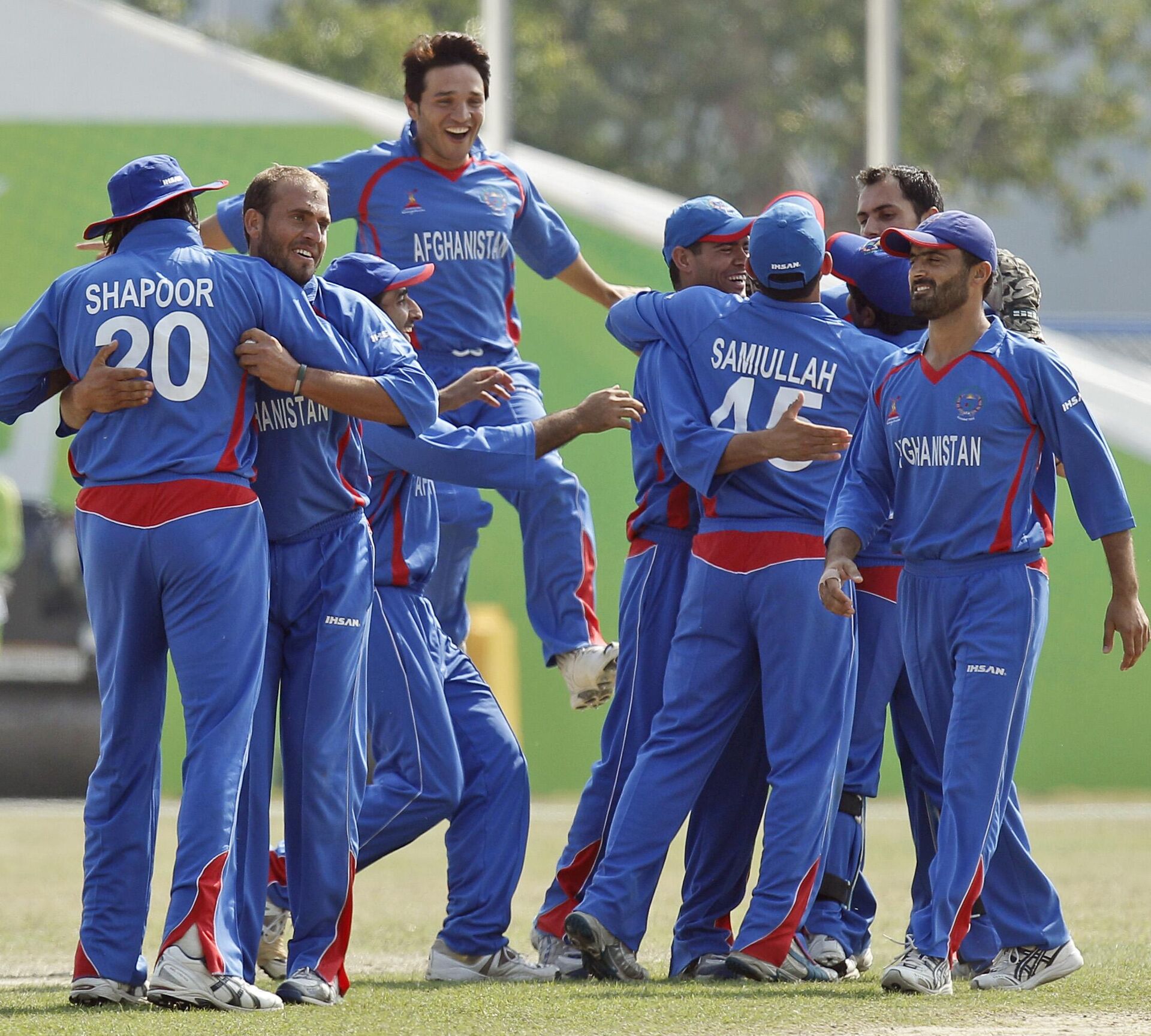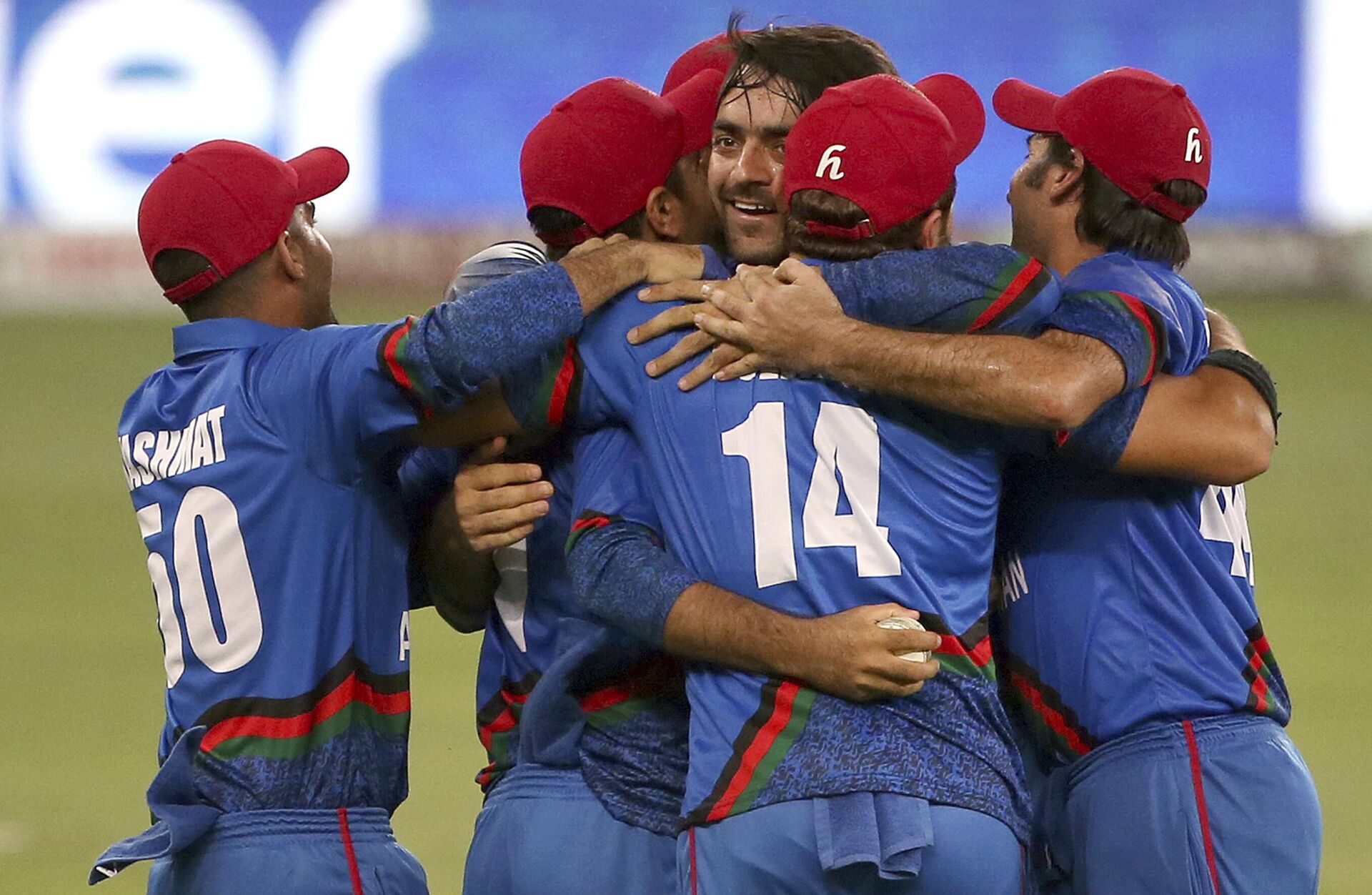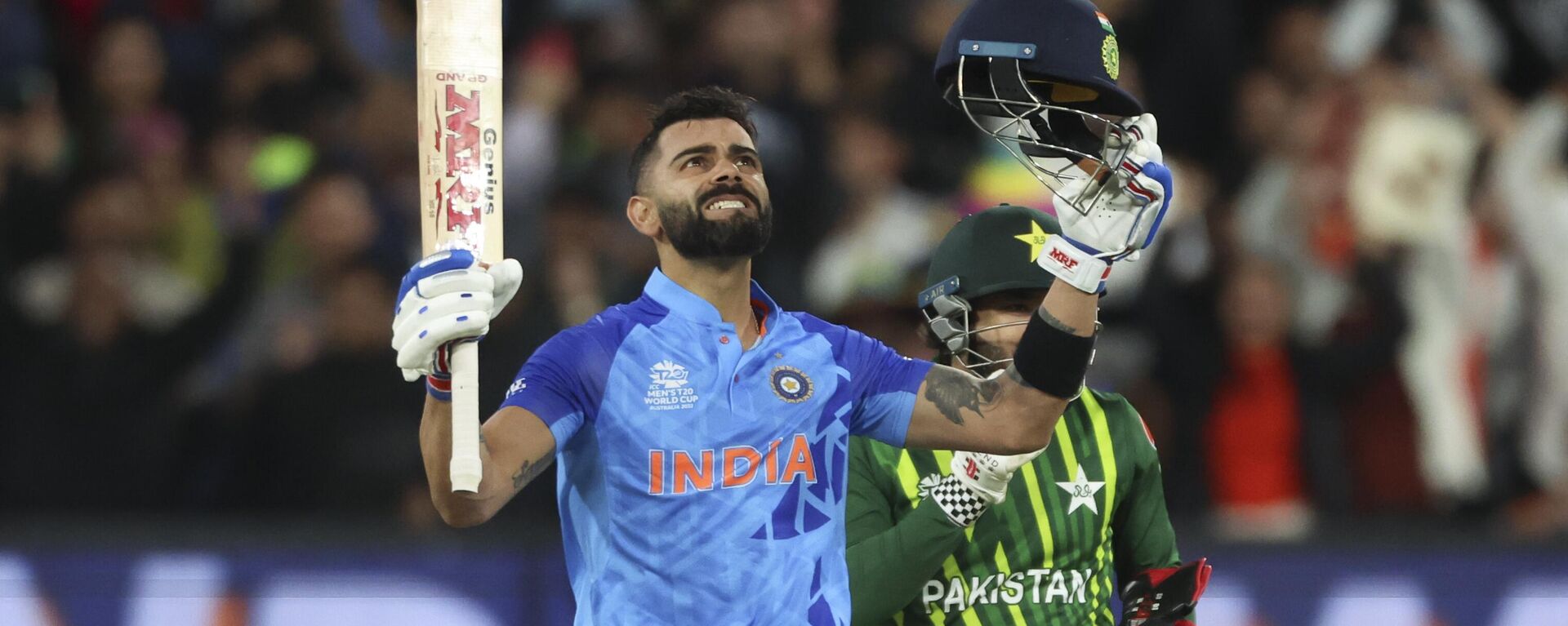https://sputniknews.in/20231018/how-india-has-contributed-to-afghanistans-rise-in-cricket-4916274.html
How India Fueled Afghanistan's Rise in Cricket?
How India Fueled Afghanistan's Rise in Cricket?
Sputnik India
Afghan cricket administrators and players have often credited India for Afghanistan's rise in cricket. Sputnik India analyses how the neighbouring nation has helped the Central Asian country.
2023-10-18T18:06+0530
2023-10-18T18:06+0530
2023-10-23T15:54+0530
cricket diplomacy
cricket
2023 cricket world cup
cricket world cup
board of control for cricket in india (bcci)
afghanistan cricket board (acb)
indian cricket team
international cricket council (icc)
pakistan cricket team
taliban
https://cdn1.img.sputniknews.in/img/07e7/0a/12/4923970_0:160:3072:1888_1920x0_80_0_0_b7a6483f6915f9c6c9742d51367e9885.jpg
The astonishing victory of Afghanistan over defending champions England during the 2023 Cricket World Cup has sparked a tremendous surge of interest in the Islamic nation's cricket players and national team.Cricket enthusiasts on social media wasted no time in highlighting the crucial role that India's ongoing support played in enabling Afghanistan's victory.India's unwavering support during times of crisis is believed to be the very reason why Afghanistan's cricket team exists today, as some have claimed.Advent of Cricket in AfghanistanAlthough cricket was initially introduced to Afghanistan by the British in 1839, it struggled to capture the attention and interest of the Afghan people for the following 150 years.In the 1990s, a significant shift occurred when numerous Afghans sought refuge in Pakistan due to the ravages of the civil war from 1992 to 1996.The Pakistan Connection in Afghanistan's CricketIn the camps situated in Pakistan, Afghan refugees had the fortunate opportunity to interact with the reigning cricket world champions, the Pakistanis. This close contact allowed them to absorb the elements of this captivating sport.Interestingly, the Taliban*, who came to power in 1996, allowed cricket to be played from 2000, despite initially banning it along with all other sports.Afghanistan's Baby StepsIn the next year, Afghanistan joined the International Cricket Council (ICC) and in 2003, they became part of the Asian Cricket Council (ACC).These were Afghanistan's first steps into cricket, which had become a religion in neighbouring countries such as India and Pakistan.The first decade of the 21st century, following the decline of the Taliban*, brought an era of tranquility to Afghanistan. This newfound peace extended to various aspects of life, including the beloved sport of cricket.Slowly but Surely, Afghanistan Wins the RaceSlowly but surely, Afghanistan's cricket team has risen through the ranks and was granted One-Day International (ODI) status by the ICC in 2009.In cricket, an ODI is a 50-over match. Cricket has two other formats - T20I (20 overs per team) and Test (played over five days).Afghanistan witnessed a significant milestone with this remarkable achievement, as their matches were not previously recognized as 'international'.Nevertheless, Afghanistan had a considerable distance to go before attaining Test status. This prestigious designation could only be obtained by becoming full members of the ICC, a feat that depended entirely on the outstanding performance of their national team in international competitions.Funding Boost Does Wonders for Afghan CricketAfghanistan experienced a significant improvement in performance following the Asia Cricket Council's (ACC) support for their bid to become an associate member of the International Cricket Council (ICC) in 2012.The Board of Control for Cricket in India (BCCI) has long been the dominant force in the ACC, establishing itself as the wealthiest governing body in cricket over several decades.In 2013, Afghanistan became an associate member of the ICC at the insistence of the BCCI, leading to a significant increase in funding from the cricket's world governing body.Despite the fact that Afghanistan only won one match in this edition of the World Cup, their remarkable progress in cricket was apparent to everyone.Taliban Insurgency Derails Cricket GrowthHowever, Afghanistan faced a major obstacle to their rise in cricket, as their growing reputation in the sport coincided with a full-scale insurgency led by the Taliban.The Afghan cricket team found themselves without any training facilities as the Afghan National Defence and Security Forces (ANDSF) clashed intensely with the Taliban throughout the nation.BCCI Comes to RescueThe BCCI showcased its generosity by graciously providing access to its venues in India, thus allowing the Afghan cricket team to relocate to the neighboring country.Furthermore, India's world-class cricket coaching facilities have provided Afghan players with an exceptional platform to enhance their skills, particularly in batting and spin techniques.Joining Elite GroupAll of these improvements ultimately played a crucial role in Afghanistan achieving Test status in 2017. The Test match, which stands at the zenith of cricket, is universally acknowledged as the supreme examination of a player's prowess, talent, and competence in the arena.Afghanistan, an esteemed member of the exclusive Test cricket league, has made the bold choice to shift their home base to the renowned Rajiv Gandhi International Cricket Stadium in Dehradun. This move was prompted by the remarkable facilities provided at the newly constructed venue, surpassing those at the Noida Stadium.In 2019, the Afghanistan Cricket Board requested the BCCI to shift their home stadium to the magnificent Ekana Stadium in Lucknow.Lucknow Food Behind Improved Performance?The switch to Lucknow could be understood in the religious context of the Afghan players. The capital of Uttar Pradesh, famous for its non-vegetarian delicacies, has a large Muslim population. Since all Afghan cricketers share the Islamic faith, they find great comfort in being there, particularly when they have an abundant supply of food prepared in accordance with their religious beliefs, such as dishes of mutton and chicken.IPL FactorThe presence of Afghan players in the Indian Premier League (IPL) appears to be a significant factor in Afghanistan's remarkable rise in cricket.Foreign players, including Afghans, except Pakistanis, are allowed to participate in the tournament. In 2017, Rashid Khan became the first Afghan player to play in the IPL.Regular interaction with some of the biggest names in cricket during the IPL seems to have provided Afghan cricketers with invaluable experience, empowering them to thrive under pressure and devise astute game strategies against formidable opponents.Moreover, former Indian cricketers like Lalchand Rajput and Manoj Prabhakar have served as their coaches in the past. Even their current batting coach, Ajay Jadeja, has a long association with the Indian cricket team.* The Taliban is under UN sanctions for extremism.
https://sputniknews.in/20231016/whats-the-virat-kohli-connection-in-crickets-inclusion-in-olympics-4871826.html
pakistan
Sputnik India
feedback.hindi@sputniknews.com
+74956456601
MIA „Rossiya Segodnya“
2023
Pawan Atri
https://cdn1.img.sputniknews.in/img/07e6/0c/13/139630_147:0:831:684_100x100_80_0_0_8fa2b25903e7787fe6a2698552c167df.png
Pawan Atri
https://cdn1.img.sputniknews.in/img/07e6/0c/13/139630_147:0:831:684_100x100_80_0_0_8fa2b25903e7787fe6a2698552c167df.png
News
en_IN
Sputnik India
feedback.hindi@sputniknews.com
+74956456601
MIA „Rossiya Segodnya“
Sputnik India
feedback.hindi@sputniknews.com
+74956456601
MIA „Rossiya Segodnya“
Pawan Atri
https://cdn1.img.sputniknews.in/img/07e6/0c/13/139630_147:0:831:684_100x100_80_0_0_8fa2b25903e7787fe6a2698552c167df.png
afghanistan vs england, england vs afghanistan, afghanistan 2023 cricket world cup, afghanistan cricket world cup, afghanistan icc world cup, how india has contributed to afghanistan's rise in cricket? afghanistan cricket rise bcci, how bcci funded afghanistan's cricket rise, afghan players in the ipl, ipl factor in afghanistan's cricket rise, afghanistan cricket bcci help, indian help afghanistan cricket,
afghanistan vs england, england vs afghanistan, afghanistan 2023 cricket world cup, afghanistan cricket world cup, afghanistan icc world cup, how india has contributed to afghanistan's rise in cricket? afghanistan cricket rise bcci, how bcci funded afghanistan's cricket rise, afghan players in the ipl, ipl factor in afghanistan's cricket rise, afghanistan cricket bcci help, indian help afghanistan cricket,
How India Fueled Afghanistan's Rise in Cricket?
18:06 18.10.2023 (Updated: 15:54 23.10.2023) Afghan cricket administrators and players have often credited India for Afghanistan's rise in cricket. Sputnik India analyses how the neighbouring nation has helped the Central Asian country.
The astonishing victory of Afghanistan over defending champions England during the 2023 Cricket World Cup has sparked a tremendous surge of interest in the Islamic nation's cricket players and national team.
Cricket enthusiasts on social media wasted no time in highlighting the crucial role that
India's ongoing support played in enabling Afghanistan's victory.
India's unwavering support during times of crisis is believed to be the very reason why Afghanistan's cricket team exists today, as some have claimed.
Advent of Cricket in Afghanistan
Although cricket was initially introduced to Afghanistan by the British in 1839, it struggled to capture the attention and interest of the Afghan people for the following 150 years.
In the 1990s, a significant shift occurred when numerous Afghans sought refuge in Pakistan due to the ravages of the
civil war from 1992 to 1996.
The Pakistan Connection in Afghanistan's Cricket
In the camps situated in Pakistan, Afghan refugees had the fortunate opportunity to interact with the reigning cricket world champions, the Pakistanis. This close contact allowed them to absorb the elements of this captivating sport.
This led to the formation of the Afghanistan
Cricket Board in Pakistan in 1995.
Interestingly, the Taliban*, who came to power in 1996, allowed cricket to be played from 2000, despite initially banning it along with all other sports.
In the next year, Afghanistan joined the International Cricket Council (ICC) and in 2003, they became part of the Asian Cricket Council (ACC).
These were Afghanistan's first steps into cricket, which had become a religion in neighbouring countries such as
India and Pakistan.
The first decade of the 21st century, following the decline of the Taliban*, brought an era of tranquility to Afghanistan. This newfound peace extended to various aspects of life, including the beloved sport of cricket.
Slowly but Surely, Afghanistan Wins the Race
Slowly but surely, Afghanistan's cricket team has risen through the ranks and was granted One-Day International (ODI) status by the ICC in 2009.
In cricket, an ODI is a 50-over match. Cricket has two other formats - T20I (20 overs per team) and Test (played over five days).
Afghanistan witnessed a significant milestone with this remarkable achievement, as their matches were not previously recognized as 'international'.
But with the ICC's move, all of Afghanistan's matches (read ODIs) against opposing countries were officially classified as
international matches.
Nevertheless, Afghanistan had a considerable distance to go before attaining Test status. This prestigious designation could only be obtained by becoming full members of the ICC, a feat that depended entirely on the outstanding performance of their national team in international competitions.
Funding Boost Does Wonders for Afghan Cricket
Afghanistan experienced a significant improvement in performance following the Asia Cricket Council's (ACC) support for their bid to become an associate member of the International Cricket Council (ICC) in 2012.
The Board of Control for Cricket in India (BCCI) has long been the dominant force in the ACC, establishing itself as the wealthiest governing body in cricket over several decades.
In 2013, Afghanistan became an associate member of the ICC at the insistence of the BCCI, leading to a significant increase in funding from the cricket's world governing body.
Thanks to the increased funding, the
Afghan cricket team was able to gain greater visibility and secure their qualification for the 2015 Cricket World Cup in Australia.
Despite the fact that Afghanistan only won one match in this edition of the World Cup, their remarkable progress in cricket was apparent to everyone.
Taliban Insurgency Derails Cricket Growth
However, Afghanistan faced a major obstacle to their rise in cricket, as their growing reputation in the sport coincided with a full-scale insurgency led by
the Taliban.
The Afghan cricket team found themselves without any training facilities as the Afghan National Defence and Security Forces (ANDSF) clashed intensely with the Taliban throughout the nation.
The BCCI showcased its generosity by graciously providing access to its venues in India, thus allowing the Afghan cricket team to relocate to the neighboring country.
In 2016, the International Cricket Stadium in Noida, which is adjacent to Delhi, became the home ground of Afghanistan. This further contributed to the development of Afghan cricketers, as they came into close contact with India's international players.
Furthermore, India's world-class cricket coaching facilities have provided Afghan players with an exceptional platform to
enhance their skills, particularly in batting and spin techniques.
All of these improvements ultimately played a crucial role in Afghanistan achieving Test status in 2017. The Test match, which stands at the zenith of cricket, is universally acknowledged as the supreme examination of a player's prowess, talent, and competence in the arena.
Afghanistan, an esteemed member of the exclusive Test cricket league, has made the bold choice to shift their home base to the renowned
Rajiv Gandhi International Cricket Stadium in Dehradun. This move was prompted by the remarkable facilities provided at the newly constructed venue, surpassing those at the Noida Stadium.
In 2019, the Afghanistan Cricket Board requested the BCCI to shift their home stadium to the magnificent Ekana Stadium in Lucknow.
Lucknow Food Behind Improved Performance?
The switch to Lucknow could be understood in the religious context of the Afghan players. The capital of Uttar Pradesh, famous for its non-vegetarian delicacies, has a large
Muslim population.
Since all Afghan cricketers share the Islamic faith, they find great comfort in being there, particularly when they have an abundant supply of food prepared in accordance with their religious beliefs, such as dishes of mutton and chicken.
The presence of Afghan players in the Indian Premier League (IPL) appears to be a significant factor in Afghanistan's remarkable rise in cricket.
The IPL stands as the top-notch T20 tournament in India, attracting the country's most eminent cricketers such as Virat Kohli, Rohit Sharma, and Jasprit Bumrah, who eagerly participate in it year after year.
Foreign players, including Afghans, except Pakistanis, are allowed to participate in the tournament. In 2017, Rashid Khan became the first Afghan player to play in the IPL.
Regular interaction with some of the
biggest names in cricket during the IPL seems to have provided Afghan cricketers with invaluable experience, empowering them to thrive under pressure and devise astute game strategies against formidable opponents.
Moreover, former Indian cricketers like Lalchand Rajput and Manoj Prabhakar have served as their coaches in the past. Even their current batting coach, Ajay Jadeja, has a long association with the
Indian cricket team.
* The Taliban is under UN sanctions for extremism.